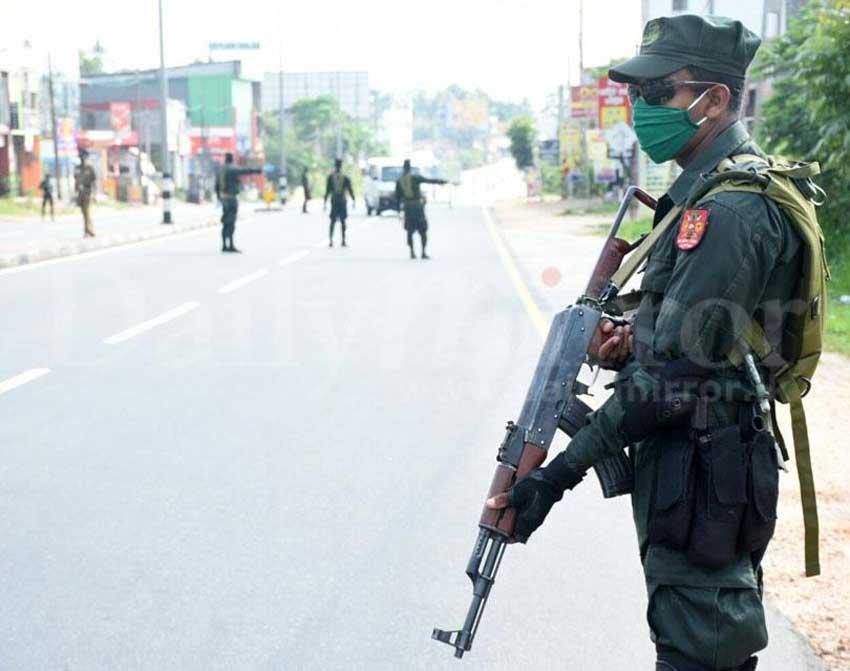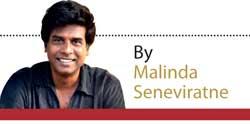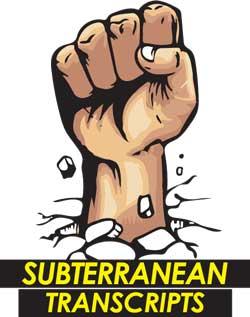Reply To:
Name - Reply Comment

 Who won the battle against terrorism? The easy answer: ‘Ranaviruwo’. Yes, the men and women who battled, who put lives on the line and lost them or were maimed for life, played the most important role, without doubt.
Who won the battle against terrorism? The easy answer: ‘Ranaviruwo’. Yes, the men and women who battled, who put lives on the line and lost them or were maimed for life, played the most important role, without doubt.
This is not the moment to enumerate contributors, but it can safely be said that many others helped in numerous ways. The general public also played a role. They took the hits and kept their faith. They were vigilant.
Today, we are dealing with a different kind of terrorism. There are similarities. There is fear. Vigilance is called for. A sense of civic responsibility has become crucial. The military, as always, stood up to the challenge. The frontlines however are not made of people in military fatigues. It’s the medical personnel, who are fighting tirelessly. ‘Suwaviruwo,’ as someone calls them, are doing their best to get the job done. And unlike in the war against terrorism, every single citizen has to be a soldier — as dedicated, vigilant, resourceful, disciplined and convinced of victory.
This is not the moment to enumerate contributors, but it can safely be said that many others helped in numerous ways

The precautionary protocols have been detailed. Adherence is the problem. All the measures taken and the untiring efforts of our medical professionals who are fighting at great personal risk will be absolutely useless if we, as citizens, do not back them 100%. This means, we have to do everything that we are required to do. It also means every single one of us has to do it.
That’s 100 percent. Not 10%. Not 95%. Not 99%. Not 99.99%. Each and every single citizen has been called on to make tremendous sacrifices for their own protection and the protection of their families and fellow citizens. If one person is careless or arrogant, everyone will suffer. One irresponsible individual or one act of irresponsibility can lead to thousands of deaths.
The evidence indicates that by and large the people recognize what needs to be done. We have seen admirable maturity and civil responsibility in this regard. Every breach however is unfortunate and even tragic. Some have not disclosed fully the history of their ailments to doctors. Some have played hide and seek. Some have even organized or attended large gatherings in absolute contravention of medical advice.
These are criminal acts. I repeat, these are criminal acts and those who behave in such manner are criminals. Obviously, kind words and pleas will not stop irresponsible, ignorant and arrogant individuals. The problem is that there’s no way of identifying such individuals until they do something absolutely stupid. This obviously calls for a tightening of rules. Freedoms will be curtailed. They must be curtailed. This could have serious repercussions if and when we overcome this crisis, for history has shown that rules broken for pragmatic reasons in a national crisis are often allowed to remain broken to serve those in power. There is no way around it. That bridge has to be crossed later. If we do not arrest this now, there would not be anyone to cross such bridges or else such travels might be rendered meaningless.
The evidence indicates that by and large the people recognize what needs to be done
One of the reasons for absconding is stigma. One. There are obviously others that are not pathetic but are pernicious. We have to recognize that the infected and those who die are our fellow citizens. Tomorrow it could be you. It could be me. If we are insensitive then we risk our fellow citizens being insensitive should be infected. Those who are ill need our help. Vilifying them or venting one’s anger on them does not help. In fact it can indirectly make this that much harder to contain. We need to identify those who are infected. We need to quarantine them. We need to check the history of their behavior. We cannot do this if they do not cooperate and they are less likely to cooperate if society shuns them.
To state the obvious, this is a global crisis. Obviously it is also a national crisis because the problem manifests itself uniquely in each nation and each nation in turn has unique coping mechanisms given available resources, cultures of containment and levels of resilience. The problem is that the entire world is in trial-and-error mode. What we know today, we didn’t know yesterday. It is easy to ask in anger or with sarcasm ‘why was that not done?’ or ‘what on earth did they do that?’ To look back in anger is easy. Retrospection is a privilege but one that doesn’t really help.
The response will always be imperfect. This is why we need to constantly reassess. We see this happening. The authorities must come clean. They must paint as accurate a picture as possible. They must communicate the truth, explain the logic of measures put in place and be firm in word and deed about what needs to be done and the kind of support expected. All policy decisions should ideally be endorsed by available scientific and medical knowledge. That expertise should frame responsea. The people will be more inclined to fall in line if they are convinced that the Government is doing its best to set in place mechanisms that will allow quick and effective response to
changing scenarios.
The government has to be sensitive to the plight of those who are daily wage earners and those who have very little savings. No household should be in want when it comes to basic needs. However, just as supporting our ‘suwawiruwo’ by following their advice, so too should we draw from the ‘basics’ that have helped our people in times of crisis throughout history. We have to help one another whenever possible and in whatever way possible. The collective ethic must come to the fore. Solidarity must be demonstrated. Such things cannot be decreed, but let us not forget that we always had and still have an ethic of giving and sharing, an ethic of standing with even our enemies in times of tragedy.
I firmly believe that Sri Lanka and Sri Lankans are fully capable of overcoming the challenge. We have to fight this battle together. Each and every one of us. We can’t leave it to the medical professionals. We can help them by being responsible, but being patient, by curbing our enthusiasm and by managing with the essentials. This is not the time to complain.
Discipline and empathy alone will see us through. This is the time to call up every ounce of civic consciousness. We have to do this. For ourselves. For our families. For friends and neighbours. It is for the nation. It is for our tomorrow. We have to tell ourselves something like the following: ‘I am at the forefront of this battle. I stand with you, stand with me. I fight with and for you, fight with me. We shall together win and secure our freedom by ridding our nation of this menace. I want to be a ‘suwaviruwa’ and I will do my best to be one’.
[email protected]. www.malindawords.blogspot.com